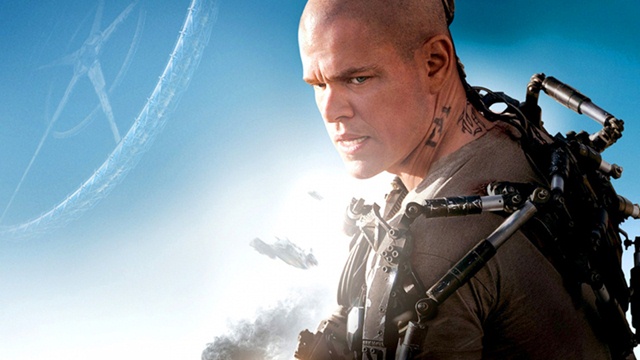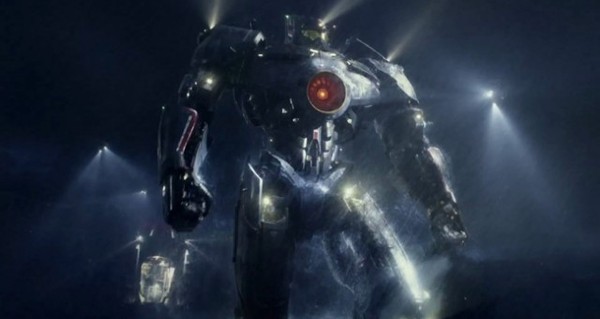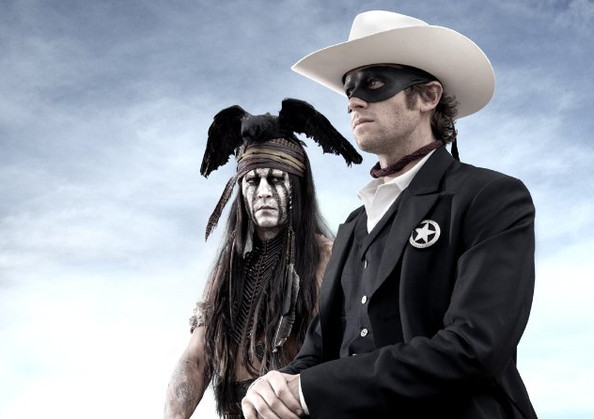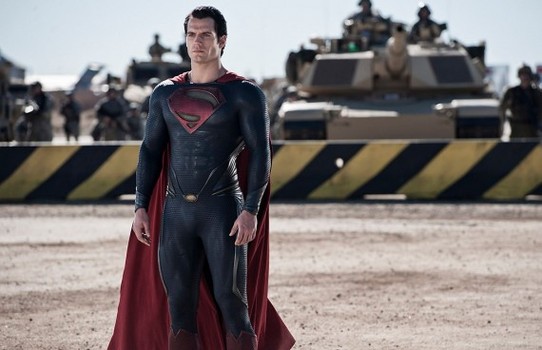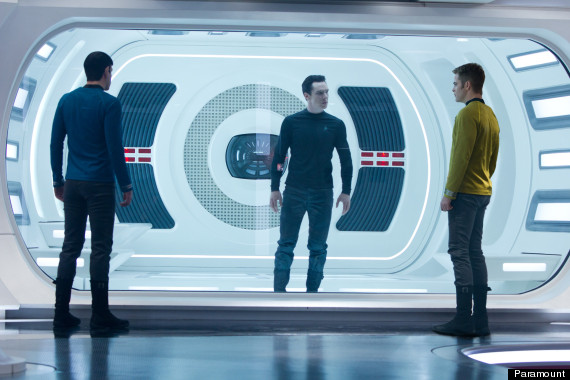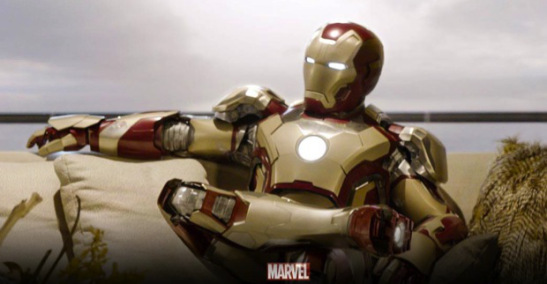Who would have ever believed that adapting J.R.R. Tolkien’s The Hobbit to the big screen would be a more daunting task than adapting The Lord of the Rings. After all, Rings is grander in scope and breadth, tackling heavier themes and showcasing intricately detailed cultures that exist solely within the world of Middle Earth. The Hobbit by comparison was a simple standalone story geared more towards younger readers. And yet, when director Peter Jackson was tasked with bringing Tolkien’s original classic to life on film, he somehow managed to make this short story into a three part behemoth that amazingly was a more complex production than his adaptation of The Lord of the Rings. Now, trying to expand a simple 300 page book into a trilogy of nearly three hour long movies was going to be problematic to some, and I acknowledge that there are some hiccups in this translation too, but I still admire Jackson’s attempt to actually make it work. The pressure that Peter Jackson must be under as a filmmaker has to be overwhelming. His adaptation of The Lord of the Rings trilogy was a rare phenomenon in film history. Fantasy films generally never escape their genre confines, and yet Rings somehow found a huge diverse fanbase, and the third film in the series, The Return of the King (2003), became the first fantasy film to ever win the Oscar for Best Picture.
Given the enormous popularity of Rings, it was inevitable that The Hobbit would also be given the big screen treatment. But The Hobbit is not the ideal way to follow-up something like The Lord of the Rings. Rings was intended as the sequel to the original novel, and Tolkien used his three volume tome to not only build upon The Hobbit, but to create an entire historical and cultural tapestry that enveloped both stories. Because the Rings films came first, Peter Jackson had put himself in the difficult position of having to meet those higher expectations. If Jackson had filmed the book as it was written, he may have alienated the Rings fanbase who wanted something bigger; and if he made it too big, and too much like Lord of the Rings, he might have upset some Tolkien purists. Hence, this is why I admire Jackson’s determination to tackle the challenge. He’s damned if he does and damned if he doesn’t. He started production expecting it to be a two-parter spread across a two year release schedule, but after having shot so much footage during filming, Jackson made the controversial decision to split The Hobbit into a trilogy. The first film, The Hobbit: An Unexpected Journey (2012) premiered a year ago to a lot of fanfare and some generally mixed reactions. Still, it did well enough to make people excited for this year’s follow-up; a movie that no body expected would ever exist, The Desolation of Smaug.
While some people were disappointed in the first film in the series, An Unexpected Journey, and I can completely understand why they would be upset, I was however generally pleased with the movie. I admired the fact that Peter Jackson managed to recapture some of that Lord of the Rings magic, nearly a whole decade after the fact. It wasn’t as successful as the Rings films story-wise, mainly because of the stretched out length and the slower pacing, but I still loved the fact that we were revisiting Middle Earth once again and exploring the corners yet unseen, while at the same time revisiting some of the highlights from The Lord of the Rings. I placed An Unexpected Journey on my Top Ten from last year, so I was eagerly anticipating this follow-up film, and as it turns out, I loved it just as much as the first; but for very different reasons. Much like the Lord of the Rings films were to each other, the two Hobbit movies are very different in tone. An Unexpected Journey was more leisurely and light-hearted, while Desolation of Smaug is darker and more action-oriented. While many moments are still played for laughs, this film does raise the stakes significantly, and hints at even heavier elements left to be seen in the third installment. Also, like Journey, Smaug encounters some adaptation problems that can’t be ignored, particularly in the ways that Peter Jackson has stretched the story out. But, even so, I found myself thoroughly entertained by this installment.
The story picks up right where An Unexpected Journey left off, with Bilbo Baggins (Martin Freeman) and the company of dwarves still on the road to Erabor, the Lonely Mountain, the ancient seat of power of the Dwarf kingdom. After finding themselves lost and delirious in the diseased forest of Mirkwood, the Dwarves are captured by the woodland Elves and taken to their forest sanctuary as prisoners. There they meet the Elven king Thranduil (Lee Pace), his son Legolas (Orlando Bloom, returning to the character he played in the Rings trilogy) and a female elf named Tauriel (Evangeline Lilly) who is more sympathetic to the dwarves plight. Bilbo manages to help his companions escape by hiding them in barrels and sending them down a river. Soon they find themselves in Lake Town, a settlement founded by the survivors of the destruction of the City of Dale, a place destroyed by the dragon Smaug. They are helped out by a noble smuggler named Bard (Luke Evans) and soon leave for their fateful confrontation with the titular dragon, hoping to reclaim their ancestral home, and the treasure it contains, once again.
Anyone who’s read the book knows the story very well, and where it’s all ultimately leading. The dilemma that Desolation of Smaug faces is the fact that it’s the middle chapter of a trilogy. It has no beginning and no end (quite literally in this case). But like with The Two Towers in the Lord of the Rings trilogy, Peter Jackson took upon the task of making the middle chapter work on it’s own, and surprisingly came up with something very unique. The Two Towers and Desolation of Smaug are films that feel freer in form than movies that surround them. For one thing, they don’t need to spend a whole lot of time setting up characters and plot, because the first film has already done that work for them. And it doesn’t have to wrap everything neatly in the end like a final chapter does, so that way it can leave more room for ambiguity. That’s why I really admire these kinds of movies, particularly in Peter Jackson’s adaptations. Desolation of Smaug succeeds because it has less of a burden put on it’s shoulders and feels more at ease in it’s storytelling. An Unexpected Journey’s laborious exposition is probably what turned off a lot of people last year, but that’s something that you will not be able to find in this film.
If the movie has a fault, it’s in the extra bits that have been added that weren’t present in the original book. Most of these additions I didn’t have a problem with in the movie, and for the most part, I think they enriched the movie’s narrative as a whole. What I didn’t like though were some story elements that didn’t add anything to the film other than to pad the run-time. This occurs mostly in the Lake Town sequences. In these scenes, Peter Jackson injects a little political subtext and commentary into the story-line; particularly with a character called the Master of Lake Town (played by Stephen Fry). Now, I greatly admire Mr. Fry both as an actor and as a human being, but his portrayal of the Master is really disappointing, and a waste of his actual talent. I chalk this up more to the way that the character is written, which is very one-dimensionally, than to Fry’s performance, which could have been great if given better material. Not only that, but the inhabitants of Lake Town are also very thinly drawn out, apart from Luke Evan’s Bard. There’s even a servant character to the Master named Alfrid (Ryan Gage) who just comes off like a poor man’s Grima Wormtougne. Also problematic is a love triangle that forms between Legolas, Tauriel, and the dwarf Kili (Aidan Turner); you heard that right. Neither story element ruins the movie at all, and I kind of found the love story angle intriguing at times, but the movie works best when it moves away from these plot diversions and back to the story proper; which is Bilbo’s journey.
For me, there was a lot more to like in this story than to dislike, and of course the thing that most people will take away from this movie will no doubt be the titular dragon himself; Smaug. Smaug has to be one of the most amazing creations in these films to date. If you thought the creatures in The Lord of the Rings trilogy were massive, you’ll be blown away by the scale of this character. Smaug really is the culmination of all the things that the effects wizards at Weta Digital have learned over the years they’ve worked with Peter Jackson. The sense of scale is astounding; you really get a sense of how massive the character is through both his movement and how he interacts with his environment. Of all the great cinematic dragons, including Malificent’s dragon form from Sleeping Beauty (1959) to the fearsome beasts in Dragonslayer (1981), to the charming Toothless in How to Train Your Dragon (2010), Smaug definitely ranks high among them, if not being the grandest of them all. A lot of credit for the character should go to actor Benedict Cumberbatch, who not only gives the character a chillingly sinister voice, but also provided the motion-capture movements on which to base the character’s on-screen presence. All of this helps to make Smaug the film’s greatest achievement. To be honest, Smaug is a character that I have long wanted to see brought to life, ever since the first Lord of the Rings film was in theaters, and man did he not disappoint. I’m very grateful that when it came to making this character a reality, Peter Jackson went above and beyond my expectations.
I should also say that the film does a very good job of building up the story-line without loosing its focus. Apart from the troublesome parts that I already mentioned, the movie does hold together very well. I actually think this is most briskly paced film in the series overall, Lord of the Rings included. The movie keeps the tempo up from the very beginning and doesn’t let up even to the final shot. It still clocks in at a lengthy 161 minutes, but that time will fly by quickly. Even when the film reaches it’s finale (with the most cliff-hangery moment ever in one of these movies), you’ll be left hungry for more. I found this pace amazing, despite the fact that the movie does have its indulgent moments. One scene in particular, the dwarves escape in wine barrels, goes on for so long and is so needlessly indulgent, that you would think it would hurt the film, but instead it actually is the best action scene in the movie. With cases like this, we see where it worked better for Peter Jackson to add tension to a scene where there was none in the book. In the original story, the dwarves escape down the river unopposed, but here they are chased by elves and the evil Orcs for a solid ten minute action scene. It’s indulgent, but also a hell of a lot of fun and full of creative moments. The audience I saw the movie with broke out in a cheer once the scene ended, and I certainly agree that it was a definite highlight. But it also demonstrates how pacing has changed between the first and second movies. Whenever Unexpected Journey was indulgent, it slowed the pacing down, whereas here it actually amps it up.
I also like the fact that the characters are also finding their footing as the story progresses. The Dwarves are more fleshed out now, especially Thorin (Richard Armitage) who’s showing a lot more internal conflict in this film than he had in the first movie. Here he’s a more fully dimensional character, showing moments of genuine nobility followed by soul-crushing greed in the next. Martin Freeman continues to shine as Biblo, although in this film, he’s somewhat sidelined; more the fault of the lengthened story than how the character is used. Freeman does have one excellent acting moment in the movie after Bilbo savagely slays a Mirkwood spider in order to reclaim his “magical ring.” Without saying a word, Freeman perfectly conveys the negative toll that this ring is already having on Bilbo’s character in that moment. Orlando Bloom returns to good form as Legolas, and the character gets some very bad-ass moments throughout the film. Evangeline Lilly manages to make Tauriel an interesting new addition to the story (she’s an entirely original character) and carries the weight of being the only central female presence in the whole trilogy perfectly. Also, the look of the film is still astounding. More so than the first film, we are exploring parts of Middle Earth that we haven’t yet seen, and they are spectacularly realized. While I thought some of the Lake Town scenes were dull, the look of the place is outstanding; like if you mixed Venice with some Dickensian slums. The look of Smaug’s lair is also a remarkable sight; with jaw-dropping mountains of gold. The set and costume design, as well as the Howard Shore score, also succeed at meeting the high standards that the series has set.
What I find interesting is how the film’s reception may actually play out. When it came to An Unexpected Journey, general audiences were bored by the more leisurely tone and heavy exposition, while Tolkien purists were pleased by how closely it adhered to the original book’s tone. This time around, I’m finding that more Tolkien purists are disliking Desolation of Smaug because of the liberties it has taken, while general audiences are enjoying the return to action-paced thrills in the series. I actually sympathize with the complaints made by both sides, but the way I look at these movies is not by how action packed they are or by how well it accurately they adapt the book, but by how they work as movies in their own right. That’s why I like both of these Hobbit movies about equally. They still don’t quite measure up to The Lord of the Rings in overall quality, but damn it if I don’t admire them for trying. Like I said, there was enormous pressure on Peter Jackson to get these movies right, and I admire the fact that he’s done as well as he has. I am particularly happy that Smaug turned out as well as he has, and I also liked the fact that Desolation of Smaug has a story that stands well enough on it’s own, and as part of an over-arching story. The film’s abrupt ending may irk a lot of people, but I commend Jackson for having the balls to leave his audience hanging. It certainly makes me excited to see the final chapter of the trilogy, There and Back Again, which comes out December 2014. But in the meantime, it’s well worth taking this continuing adventure into the world of Middle Earth.
Rating: 8.5/10




